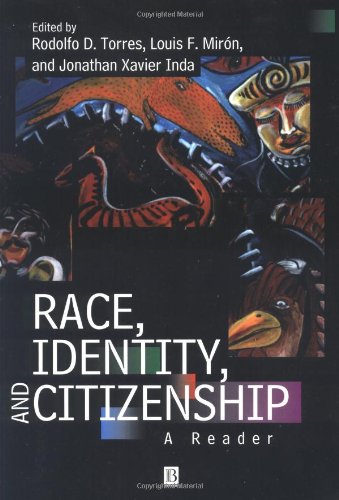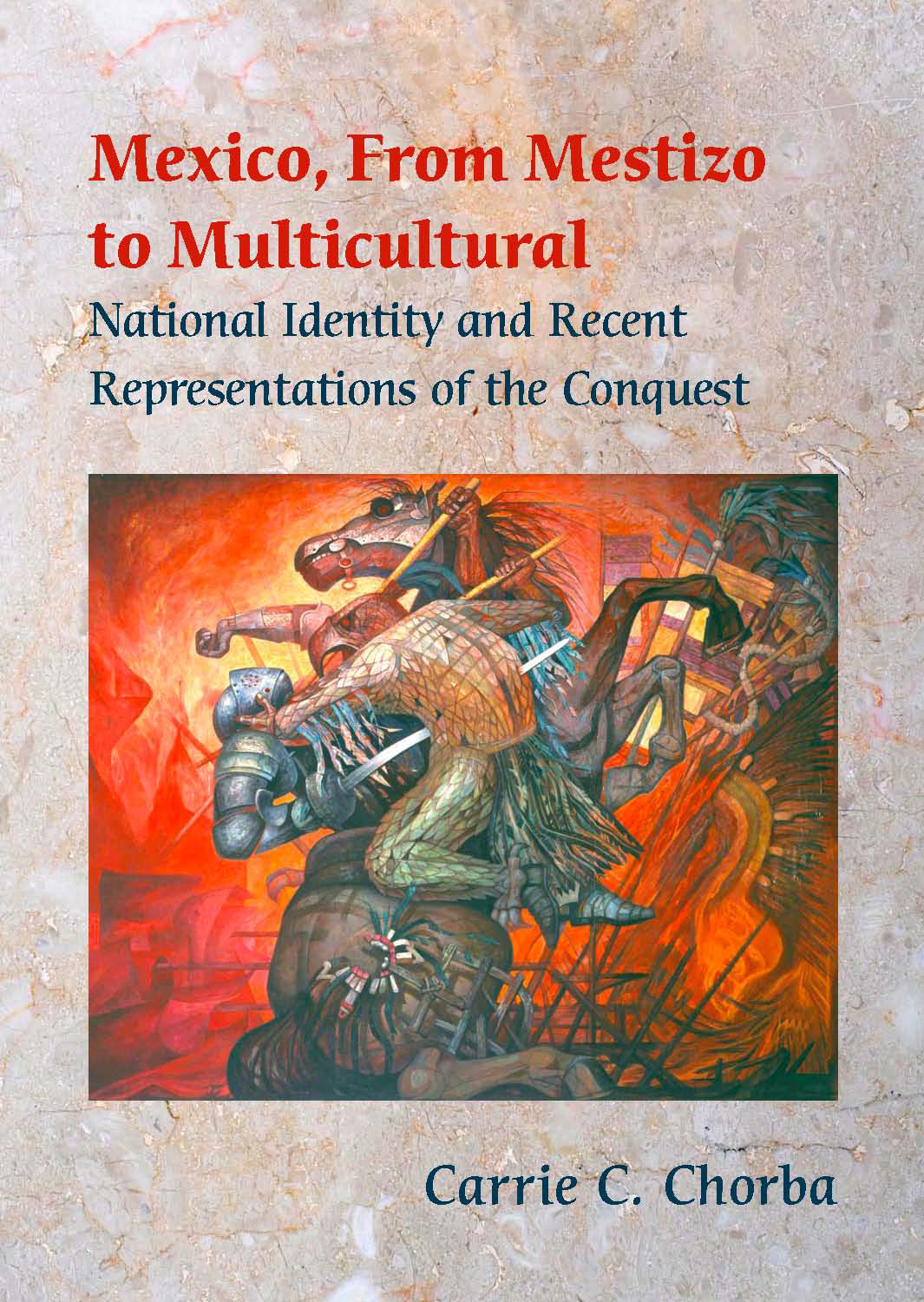Race, Identity and Citizenship: A ReaderPosted in Anthologies, Books, Literary/Artistic Criticism, Media Archive, Philosophy, Social Science on 2013-09-21 21:18Z by Steven |
Race, Identity and Citizenship: A Reader
Wiley-Blackwell
June 1999
454 pages
Hardcover ISBN: 978-0-631-21021-4
Paperback ISBN: 978-0-631-21022-1
Edited by
Rodolfo D. Torres, Professor of Planning, Policy & Design and Political Science
University of California, Irvine
Louis F. Mirón
University of California, Irvine
Jonathan Xavier Inda, Associate Professor of Latina/Latino Studies and Criticism and Interpretive Theory
University of Illinois, Urbana-Champaign
In recent years, race and ethnicity have been the focus of theoretical, political, and policy debates. This comprehensive and timely reader covers the range of topics that have been at the center of these debates including critical race theory, multiracial feminism, mixed race, whiteness, citizenship and globalization. Contributors include Angela Davis, Stuart Hall, Richard Delgado, Robert Miles, Michael Eric Dyson, Saskia Sassen, Étienne Balibar, Patricia Hill Collins, Renato Rosaldo, Stanley Aronowitz, and Collette Guillaumin.
Table of Contents
- List of Contributors
- Acknowledgments/Copyright Information
- Introduction
- Part I: Mapping The Languages of Racism
- 1. Does “Race” Matter? Transatlantic Perspectives on Racism after “Race Relations” Robert Miles and Rodolfo D. Torres
- 2. “I Know it’s Not Nice, But. . . ” The Changing Face of “Race” Colette Guillaumin
- 3. The Contours of Racialization: Structures, Representations and Resistance in the United States Stephen Small
- 4. Marxism, Racism, and Ethnicity John Solomos and Les Back
- 5. Postmodernism and the Politics of Racialized Identities Louis F. Mirón
- Part II: Critical Multiracial Feminism
- 6. Theorizing Difference from Multiracial Feminism Maxine Baca Zinn and Bonnie Thornton Dill
- 7. Ethnicity, Gender Relations and Multiculturalism Nira Yuval-Davis
- 8. What’s in a Name? Womanism, Black Feminism, and Beyond Patricia Hill Collins
- Part III: Fashioning Mixed Race
- 9. The Colorblind Multiracial Dilemma: Racial Categories Reconsidered john a. powell
- 10. Multiracial Asians: Models of Ethnic Identity Maria P. P. Root
- 11. Cipherspace: Latino Identity Past and Present J. Jorge Klor de Alva
- Part IV: The Color(s) of Whiteness
- 12. Establishing the Fact of Whiteness John Hartigan, Jr.
- 13. Constructions of Whiteness in European and American Anti-Racism Alastair Bonnett
- 14 The Labor of Whiteness, the Whiteness of Labor, and the Perils of Whitewishing Michael Eric Dyson
- 15. The Trickster’s Play: Whiteness in the Subordination and Liberation Process Aida Hurtado
- Part V: Cultural Citizenship, Multiculturalism, And The State
- 16. Citizenship Richard Delgado
- 17. Cultural Citizenship, Inequality, and Multiculturalism Renato Rosaldo
- 18. Cultural Citizenship as Subject Making: Immigrants Negotiate Racial and Cultural Boundaries in the United States Aihwa Ong
- Part VI: Locating Class
- 19. The Site of Class Edna Bonacich
- 20. Between Nationality and Class Stanley Aronowitz
- 21. Class Racism Étienne Balibar
- Part VII: Globalized Futures And Racialized Identities
- 22. Multiculturalism and Flexibility: Some New Directions in Global Capitalism Richard P. Appelbaum
- 23. Analytic Borderlands: Race, Gender and Representation in the New City Saskia Sassen
- 24. Globalization, the Racial Divide, and a New Citizenship Michael C. Dawson
- Part VIII: Critical Engagements
- 25. Interview with Stuart Hall: Culture and Power Peter Osborne and Lynne Segal
- 26. Angela Y. Davis: Reflections on Race, Class, and Gender in the USA Lisa Lowe
- Index

